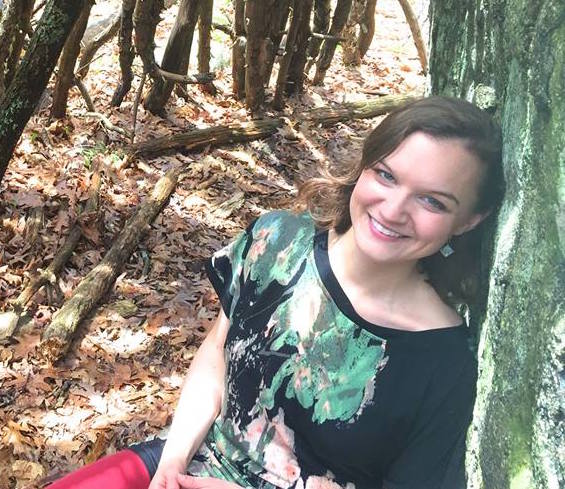Bread and Puppet
The drumming continued into the evening. The sky grew dark, and the park was enclosed in a shroud of light generated by little tea cup candles held by protesters, sparked by the bonfire. Beyond the center of the protest, the light dimmed, darkness enveloping the tall maples of the hills around us. Within the bubble of fire, the adults jumped up and down to warm their feet, and the children ran in circles. People rubbed their hands together, smiling shyly.
A light shone over the crest of the hill. Movement stopped. The flame approached us, and another torch followed.
One of the protesters yelled, “It’s Bread and Puppet!” It was time to begin.
The puppets bobbled towards us. Their faces were white or tan, and they had grotesque features, with pursed, scowling mouths, distended teeth, bulging eyes, and sharp, pointed noses. Some of them had horns. Their hair flung madly. They wore suits and ties striped with red. They guffawed as they came down the road, yelling about taxes. The children were scared and hid behind their parent’s legs, which made the adults laugh because they, too, hated big business and were afraid of its embodiment. “If you are good,” they said, “when you are big we will not need puppets. Change the world.”
The ground shook. The puppets lumbered around in a circle, chanting. They threw candy for the children to collect, who dove at it like animals. Incredibly, the puppets were able to stand on stilts even with their large masks. They seemed to be able to levitate on their principles and elicit a promise from the crowd that they would indeed transform the world one stitch at a time.
The drums stopped. The singing ended. Some of the puppets took off their heads. Or, rather, their masks. They handed out packets, flyers that would bring change for the coming year. In the spirit of the dramatic arts, they posed for photos. One even let me touch his puppet hair.
Brattleboro, Vermont is not the most famous place to see puppets, but as you travel throughout the state you can hear rumors of their ten-foot tall presence decorating inns, schools, and streets, as some believe that they remind us that we can be something that we are not. The original Bread and Puppet started in Burlington and was just for residents of the city. The puppets climbed the cobbled corners of Church Street, extracting a pledge from men and women to be better than we believed ourselves to be.
This was Bread and Puppet, a social justice theater company. This was 2001, and the war had just begun.
A woman approached me as I stared at the crowd. Her head looked like a puppet had placed her face on another woman’s body, a smaller body. I was afraid of her. I didn’t want to speak with a stranger.
“Are you from around here?” she asked.
I shook my head.
“Do you like Bread and Puppet?” she asked.
I nodded.
“Do you like puppets?” she asked.
I nodded again. She smiled.
“I make puppets,” she said. She took a step back, surveying my face. “Are you afraid?”
I looked at the ground.
“Don’t be afraid. I had a daughter once.” She reached behind her and took out a photo of a small girl holding a puppet. “I made that,” she said. “I have made them all.” She smiled once more. “Open your hand,” she said.
And just like that, she handed me the smallest puppet in the world. Two inches tall, its head in the shape of a star.
I tried to thank her but as I looked up she disappeared into the crowd and a puppet arose in her place. Its face was frozen in a look that smiled eternally. Red. Charred. Almost like a clown. It leaned down and whispered in my ear. “Change,” the puppet told me as the fire roared. “Change the world.”
The two inch puppet sat in my room for years. For a while I hung it on my wall. Later, my mother shoved it in a desk drawer. Later still, I took it to college and put it above my bookshelf. And then to apartment after apartment, always keeping it close, always keeping it visible, though now it’s in tatters. Remnants of Bread and Puppet Theater. Of fire. Of drums. Of a puppet’s dance. Of one woman’s grief played to the sound of a changing heart and a beating drum.

Rebecca Van Horn is an MFA student at the University of New Hampshire. She has been published in the Atticus Review, Outlook Springs, Moment Magazine, and The Creative Truth, among others. She was nominated for a Pushcart Prize. When she’s not writing or teaching, she can be found roaming the hills with her dog or sawing away at the violin.